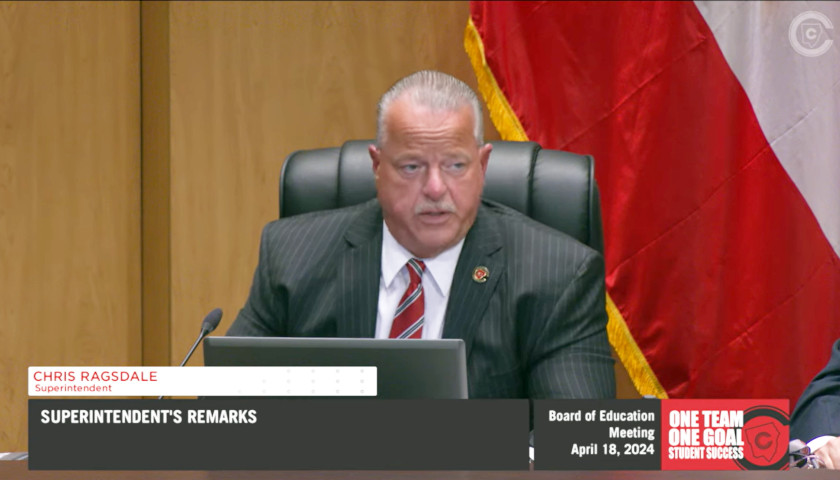State Senator Todd Gardenhire (R-Chattanooga) introduced legislation that would prohibit Tennessee public schools and universities from mandating “implicit bias” training. If passed, SB102 would also extend to state agencies, including the Tennessee Department of Education (TDOE) and The State Board of Education (SBE). Neither of these agencies currently requires employees to participate in training as a condition of employment.
The National Institutes of Health defines implicit bias as a form of bias that occurs automatically and unintentionally, but nevertheless affects judgments, decisions, and behaviors. Research has shown implicit bias can pose a barrier to schools creating a diverse workforce and negatively impact student learning. In an effort to mitigate the negative effects, schools and businesses have implemented mandatory training for employees, Gardenhire’s law would work to end these mandates.
Gardenhire’s bill defines implicit bias training as any program that presumes an individual is “unconsciously, subconsciously, or unintentionally” predisposed to “be unfairly prejudiced in favor of or against a thing, person, or group to adjust the individual’s patterns of thinking in order to eliminate the individual’s unconscious bias or prejudice.”
Implicit bias training varies from school district to school district, and while training solely focused on addressing “implied bias” may not be required, it is often part of required training on larger equity issues. Supporters say that training is designed to make individuals aware of how their subconscious prejudices, and subsequent behavior, impact others. Research has shown a possible connection to disparities between black and white students when it comes to student achievement, learning opportunities, and school discipline.
In Tennessee, students of color make up roughly 40% of the state’s public school population, while about 13% of the state’s educators are teachers of color.
While research may support the need to address bias and its impact on the classroom, questions on how best to address the issue remain. Without proper structure, the outcomes of mandatory training often produce results contradictory to desired outcomes. Improperly conducted training can contribute to a less welcoming and more biased environment.
Per a study published in 2016 and referenced by the Harvard Review, despite most people assuming that diversity policies make companies fairer for women and minorities, the data suggest otherwise. Even when there is clear evidence of discrimination at a company, the presence of a diversity policy leads people to discount claims of unfair treatment. In previous research, it has been found that this is especially true for members of dominant groups and those who tend to believe that the system is generally fair.
Most experts credit voluntary participation with producing more desirable outcomes. Even those considered supporters of bias training, concede that there are shortcomings to relying solely on mandatory training.
Vanderbilt University assistant professor Mark Chin tells Chalkbeat, “A single session where people are told of implicit biases is less impactful than sustained, embedded conversations around implicit bias.”
In 2021, Tennessee became one of the first states to limit how race and bias can be taught in schools. State Sen Gardenhire voted to support that bill, despite a history of supporting immigrant students’ rights, which often puts him at odds with fellow party members.
As a legislator representing a diverse constituency, the state lawmaker has repeatedly introduced legislation that would permit all Tennessee graduates, regardless of their immigration status, to pay in-state tuition at state universities. The legislation ultimately failed, earning fellow Republicans the public ire of Gardenhire.
Referring to the defeat his measure as a “victim of election-year politics,” he told the Times Free Press, “It’s my understanding that the House leadership doesn’t want to schedule it for a vote in the House Education Committee,” adding that the Senate leadership wanted to wait until the bill passed in the House before taking it up.
Gardenhire was a member of a state Study Committee of Refugee Issues, formed by Lieutenant Governor McNally and Speaker Sexton, in hopes of removing the “rhetoric” around unaccompanied children coming to Tennessee. Gardenhire has previously insisted on the use of “undocumented” as opposed to “illegal” in reference to immigrants.
The American Conservative Union recently gave the state senator a rating of 73 out of 100 on conservative issues, down 2 points from the previous year. Subsequently ranking him 74 out of the 130 state legislators.
Rep Jason Zachary (R-Knoxville) is co-sponsoring the bill in the House. Thanks to a new online application, the TGA House Dashboard, recently unveiled by Tennessee House Speaker Cameron Sexton (R-Crossville), citizens will be able to track the bill’s progress in the House in real time. Per a press release from Sexton’s office, the dashboard gives members of the public “the same access to the legislative process as their elected officials.”
– – –
TC Weber is a reporter at The Tennessee Star and The Star News Network. He also writes the blog Dad Gone Wild. Follow TC on Twitter. Email tips to [email protected]. He’s the proud parent of two public school children and the spouse of a public school teacher.
Photo “Todd Gardenhire” by Tennessee General Assembly. Background Photo “Classroom” by weisanjiang.







